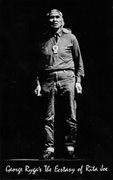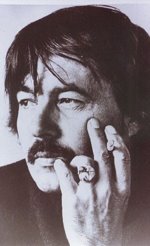Sunday, July 09, 2006
A host of things
 THERE'S MORE ABOUT TURTLES THAT I DON'T KNOW THAN YOU'D probably think.
THERE'S MORE ABOUT TURTLES THAT I DON'T KNOW THAN YOU'D probably think."The truth about stories," says Tom King, "is that's all we are." There are so many stories, so many histories we tell and are woven from. I had a chance to sit down with my friend the other day for the first time in, well, too long, and talk about what storytelling should be all about. What's more important? The message, or the entertainment? How do you do enrapture the listener, plant that hook, and reel them in?
I suppose I should begin by saying that this week's book is actually a play, one I didn't know much about until recently and am still learning more about, and given that the issues I think it speaks to are also much greater than my understanding of them, I'd like to point out that there are a great host of things about which I simply don't know enough to speak with any authority to, and this is one of them. The standoff at Caledonia between Six Nations band members, OPP officers, Caledonia residents, and developers which came to a head a few months ago is not new news by any stretch of the imagination, but luckily I don't run on a 24-hour news cycle, so I can write about what I'm curious about and think should get a chance to be heard.
This is also a good chance to somewhat explain the concept behind this site. Last year, my friend asked me to come up with a way to sort of summarise things going on in our community and around the world for him; a sort of Newsnet Lite. I quickly discovered that I am exceedingly poor at doing just that. I can't summarise if my life depends on it, and as may be evident, I like to talk for a long time about things.
I am, however, pretty devoted to reading, and I was curious to see if I could find a way to tell him about what I was reading in light of things happening on this planet we call home. More often than not, though, what I'm reading is wrapped up in social and cultural and political contexts I don't have the whole picture about, so I end up doing a little bit of a background to place it squarely amidst the rushing currents of time and so on, etc. This is the process I have pried open here, and this is the process I am still going through with a play called The Ecstasy of Rita Joe, by Canadian playwright George Ryga.
When Rita Joe was first produced in 1967, Canadian theatre in Canadian theatres was, fittingly, slim; a successful, talked-about play dealing with aboriginals, well... I was born about two decades later, but it's still incredible to me. When the Vancouver Playhouse put Ryga's piece up on stage, they must have had some inkling of what a groundbreaking, and necessary, play it was. The story follows the journey of the eponymous young Rita Joe, a woman adrift in a city, caught between it and the reserve she comes from, and volleyed around from government program to social net to court again and again. It is not your average piece of theatre, even for a contemporary audience. And director George Bloomfield must have felt something of this when he cast Chief Dan George as Rita's father, in a part nearly written for him, the man captured so iconically in the image on the Talonbooks edition's cover.
I've only recently become familiar with Chief Dan George, but the role certainly demands a certain natural weight from the actor. Rita's father, David Joe, is a patient, if conflicted, man. His wisdom seems to come not from any need to trumpet hard-earned credentials or show signs of his greatness, but from a well of strength that lets him bear the loss of his daughter to other possibilities and a desire to rise above anger and disappointment. Rita's lover, Jaimie Paul, walks with him in one scene on the reserve (possibly a dream of Rita's), and shouts his frustration at the futures closing down before him:
"No more handouts, David Joe... We can pick an' can the berries ourselves."Rita's father refuses to let the frustrations of the possible futures set out for them conquer him. But throughout the play, there is a recurring theme of characters trying to battle a system set out ostensibly for their benefit, but more often than not, presenting barrier after barrier to them. The play is mainly told through Rita's trial before a magistrate (not for the first time) on charges of prostitution, and her visions of past and future events. Dark figures cling to the shadows of the stage, and as the judge demands again and again she bring forth witnesses to testify to her character, she is visited by the spectres of Jaimie Paul and her father and her sister.
"We need money to start a cooperative like that," Rita's father replies.
"Then some other way!"
The next stage direction reads, "The old man listens, standing still, to the sounds of the train and night." "You're a young man, Jaimie Paul," he says. "young an' angry. It's not good to be that angry."
"We're gonna work an' live like people... Not be afraid all the time... Stop listening to an old priest an' Indian department guys who're working for a pension!," Jaimie Paul roars back.
"You're young man, Jaimie Paul..."
"I say stop listening, David Joe! ... In the city they never learned my name. It was 'Hey, fella'... or 'You, boy'... That kind of stuff."
There's a pause, and then the sound of a train whistle.
"A beautiful night, Jaimie Paul."
Jaime Paul seems in untenable conflict with authority figures of "mainstream" society throughout the play, perhaps less by any innate combativeness than by an incompatible conflict of stories. The one he wants to believe, the one his people tell and lived their lives through, does not seem to be able to survive along the rushing onslaught of the government's own story. Defiant before a judge himself at one point, he yells, "Give me back my truth!" You see, what Tom King means when he says all we are is our stories, is that we live out our own myths, and by myths I don't mean false legends. The creation stories we hold true, the stories about our histories, the stories of what's good and what's evil, are lived out in our lives every day, and they define us in profound ways. Well, that's what Tom King says. But I think he's onto something.
A Six Nations leader (whose name escapes me) being interviewed by CTV a few months ago at the Caledonia blockade said he wanted the media to stop referring to the organisers as "protesters." Instead, he said, they should simply be referred to as Six Nations people, and when asked how long they intended to stick out the dispute, he said his people had been on the land for centuries, and they weren't going anywhere anytime soon. It's a comment that highlights the divisive conflict that came to public attention this year over land near Hamilton that Six Nations people claim was granted to them by the Crown in 1784, and that developer Henco Industries Ltd, which has begun construction there on a new subdivision, claims was ceded to the government in 1841, and later sold to them.
The Globe and Mail's Murrary Campbell quite rightly pointed out in April that there is a question here, when critics of those protesting say that "the rule of law must prevail," of whose law we're talking about. When Six Nations members announced on February 28 that they would begin occupying the land Henco has sketched out for the Douglas Creek Estates development, a conflict was physically manifested between what Campbell calls "the law of the conquering race that apportions land and offers clear deeds of ownership... [and]the law of the natives who sanctify the land--the back of the great turtle--and do not believe it should be commercialized."
 Two different stories, two different ways of life. What to do?
Two different stories, two different ways of life. What to do?Ryga, a Ukrainian-Canadian writer from Northern Alberta, seems to say in The Ecstasy of Rita Joe that every attempt at benevolence from the... well, the white society, is destined to compound the oppression of Rita and others like her. Adrift in the city, called to summon character witnesses she cannot, she is condemned over and over and over in every act of "goodness" tried by her teachers, her priest, the workers at the soup kitchen... Even in its time it was criticised for being overly blunt and wide in its condemnation of what comes off as systematic oppression. But there is something that rings true in Rita's bitter query when her old school teacher's impressions of her behaviour as a child come back to haunt her: "One letter... one letter for a lifetime?"
When the UN Human Rights Council almost unanimously passed a declaration last month which called for an expansion of indigenous rights worldwide, only two countries refused to endorse the document, which has been in the works for decades; Canada and Russia. Australian network ABC News reported that, "Australia is not a member of the council but Canada says it was representing the interests of Australia, American and New Zealand." Unsurprisingly, all are nations with significant aboriginal populations, and the latter three recently put out a joint statement "reject[ing] the assertion that aboriginal people have the right to 'self determination, saying it was inconsistent with international law."
Officially, the government's position has been that it wants another two years of negotiations over the wording of the declaration. There are sections in the non-binding document, which goes to the UN General Assembly for approval in September, which Indian Affairs minister Jim Prentice has argued are not in line with the Canadian government's position on aboriginal rights to land claims and self-determination. Prentice also hinted at the Conservatives' umbrage with sections that might complicate future oil and mineral agreements with First Nations groups.
After months of tension between Caledonia residents and Six Nations members, between those blockading the main road through town and Ontario Provincial Police officers, the Ontario government agreed in late June to pay $12.3 million to Henco Industries to buy the land and put it in trust until the land dispute is resolved. Opposition leader Jim Tory has criticized the move, saying it will set a dangerous precedent for future land claim negotiations; Six Nations members continue to occupy the land.
The presence of the OPP has made the standoff regrettably reminiscent of the Ipperwash incident of 1995, where OPP officers involved in a similar dispute shot and killed one member of a group occupying Ipperwash Park, Dudley George, allegedly at the behest of provincial government officials. Fortunately, this time, peaceful negotiations commenced, with mediators present, at an early stage. Some Ontario politicians have even accused the McGuinty government of not getting involved enough in diffusing the crisis. So many questions.
It all makes me wonder what exactly we were celebrating last Saturday, when those three young men in Ottawa, evidently brimming with their own comic genius, saw fit to urinate on the War Memorial. What does it mean to celebrate the founding and development of a country whose history is so many times fundamentally at odds with the people who have inhabited this land since millenia before Pierre Trudeau was a twinkle in his mother's eye? Perhaps you see why I say I don't know enough to speak with any authority to these issues; with so many layers, so many stories, there is a lot to take in.
Who does the land belong to? Does it belong to any of us? At any rate, we won't find the answers until we really understand each others' stories. I wish I could have seen Chief Dan George on stage back in 1967, especially in the scene where Rita's father comes to the city to take her back home. The journey has exhausted him, and she is torn between staying with Jaimie Paul or returning to the only real home she knows, but where she feels there is nothing left for her. "I live... an' I'm afraid. Because... I have not done everything. When I have done everything... know that my children are safe... then... it will be alright," he says. Turning away from both of them, he muses, "For a long time... a very long time... she was in my hands... like that!" He cups his hands together into a bowl. "Sweet... tiny... lovin' all the time and wanting love..."
His is a dignity and a love I would have been honoured to witness.
Note: This entry should have appeared Wednesday, 5 July 2006.
Labels: aboriginal stuff, books
0 Comments:

This work is licensed under a Creative Commons Attribution-Noncommercial-Share Alike 3.0 Unported License.


